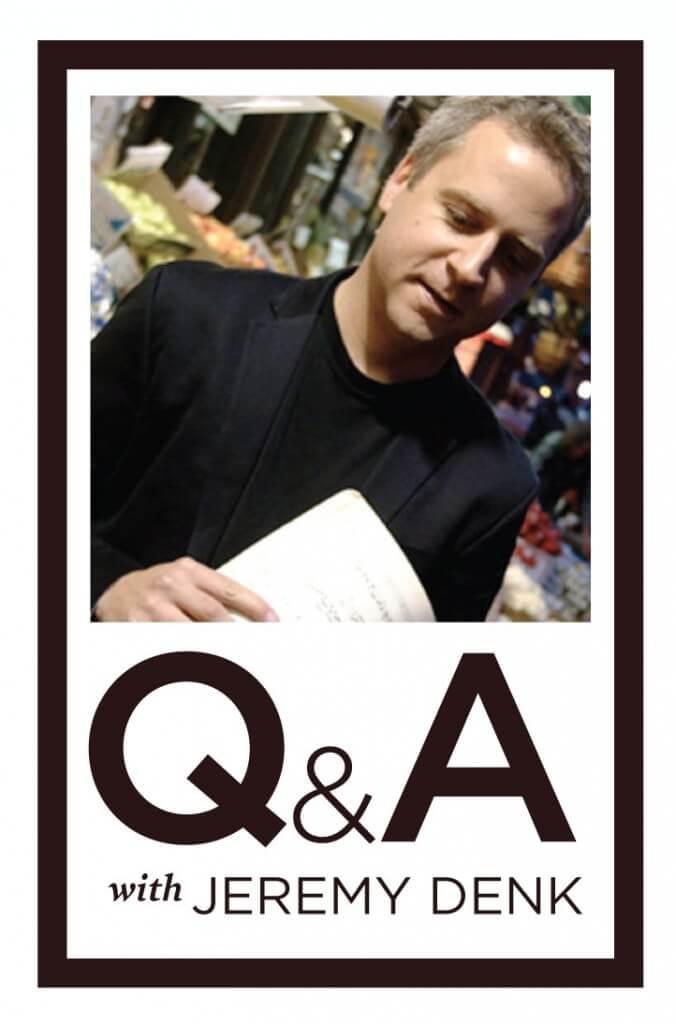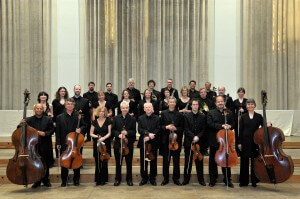Q&A with Jeremy Denk
 UPDATE: Read Part II of our Q&A with Jeremy Denk
UPDATE: Read Part II of our Q&A with Jeremy Denk
Known to Purdue audiences from 2008’s collaborative recital with Joshua Bell and a 2009 solo appearance, Jeremy Denk will return to Purdue University—with the Academy of St. Martin in the Fields—on March 24.
Q: This is your first series of engagements with the Academy of St. Martin in the Fields. What excites you about conducting them?
JEREMY DENK: I grew up with their records, and it’s an amazing tradition. That’s definitely part of it: the thrill of playing with a famous and storied ensemble. I’m looking forward to that music; the Bach keyboard concertos are some of my most-beloved music. It’s a lot closer to chamber music than a concerto, and the whole ensemble has to be unified in a way that’s even more profound than with Mozart or Beethoven. I’m looking forward to the opportunity to rehearse this music and find the groove of it with them—to find a way to talk together about Bach that makes sense on the modern piano in the 21st century.
They’re unstoppable, they also have all kinds of wonderful quirks and not exactly wrong turns, but strange turns and surprises and curlicues.
-Denk, on the Bach concertos
Q: Most instrumentalists perfect their repertoire on their own personal instrument. How do you prepare to perform on a piano that you barely know for each performance?
JD: You get used to, in the hours or time in the hall that you have, understanding the instrument’s strengths and limitations—what you can say on it and how to bring the sounds that you want out of it. Sometimes it’s frustrating and sometimes you’re surprised by how it’s possible to say new things. It’s part of the pianist’s life; you have to constantly communicate in public on an instrument that is basically a blind date. I know pianos all look the same to everyone, but they’re made of so much wood and there are so many millions of little parts. They’re very sensitive and finicky instruments, and small changes can make big effects.
Q: You do a lot of interviews; what do you wish people would ask you that they never do?
JD: They ask me a lot of things, but usually what I want to talk about is whatever piece I’m playing or fascinated by at the moment. Usually, what I’d love to do most of all is sit down at the piano with someone and talk through some magical passage. That’s what I try to do on the blog when I get into the workings of certain pieces. Maybe, in a way, that’s why the blog was such a natural fit for me. It allows me to speak about music exactly the way that I want to at any given moment, and sometimes that’s wry and humorous, or reflective, or analytical. What’s so extraordinary about the Bach concertos is the rhythmic en- ergy that they represent—a moto perpetuo in some ways because once they get started, they click or hum along. But at the same time that they’re unstoppable, they also have all kinds of wonderful quirks and not exactly wrong turns, but strange turns and surprises and curlicues. Bach is the great genius of doing that—of keeping you jogging along this rhythmic track of the wonderful energy he’s set up, and yet, at the same time, anything and everything can happen while you’re going.
Interview by Stacey Mickelbart
UPDATE: Read Part II of our Q&A with Jeremy Denk
Tickets
 Academy of St. Martin in the Fields with Jeremy Denk, piano
Academy of St. Martin in the Fields with Jeremy Denk, piano
March 24 / 7:30PM / Elliott Hall of Music / $22-45 / Children & Students: $15